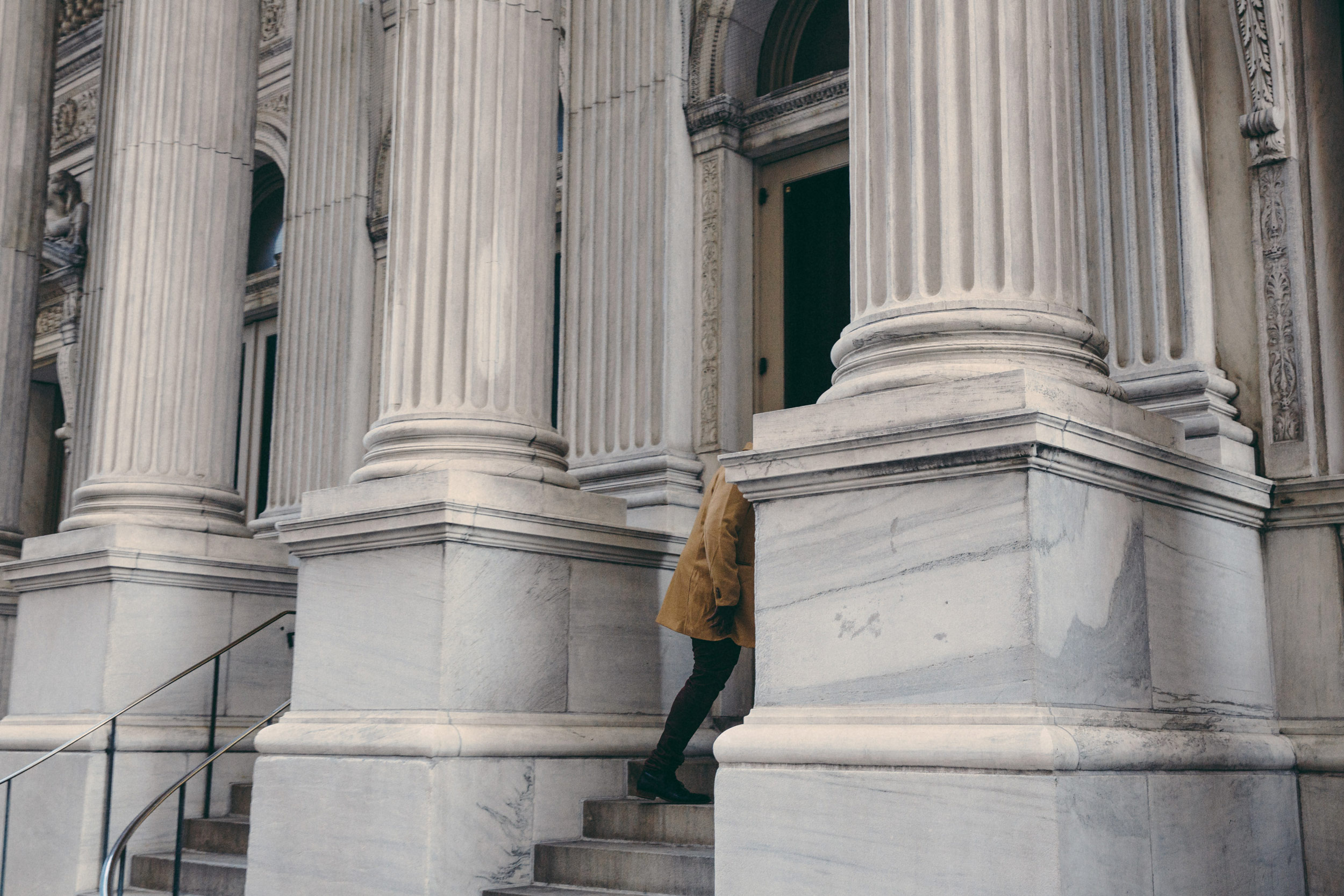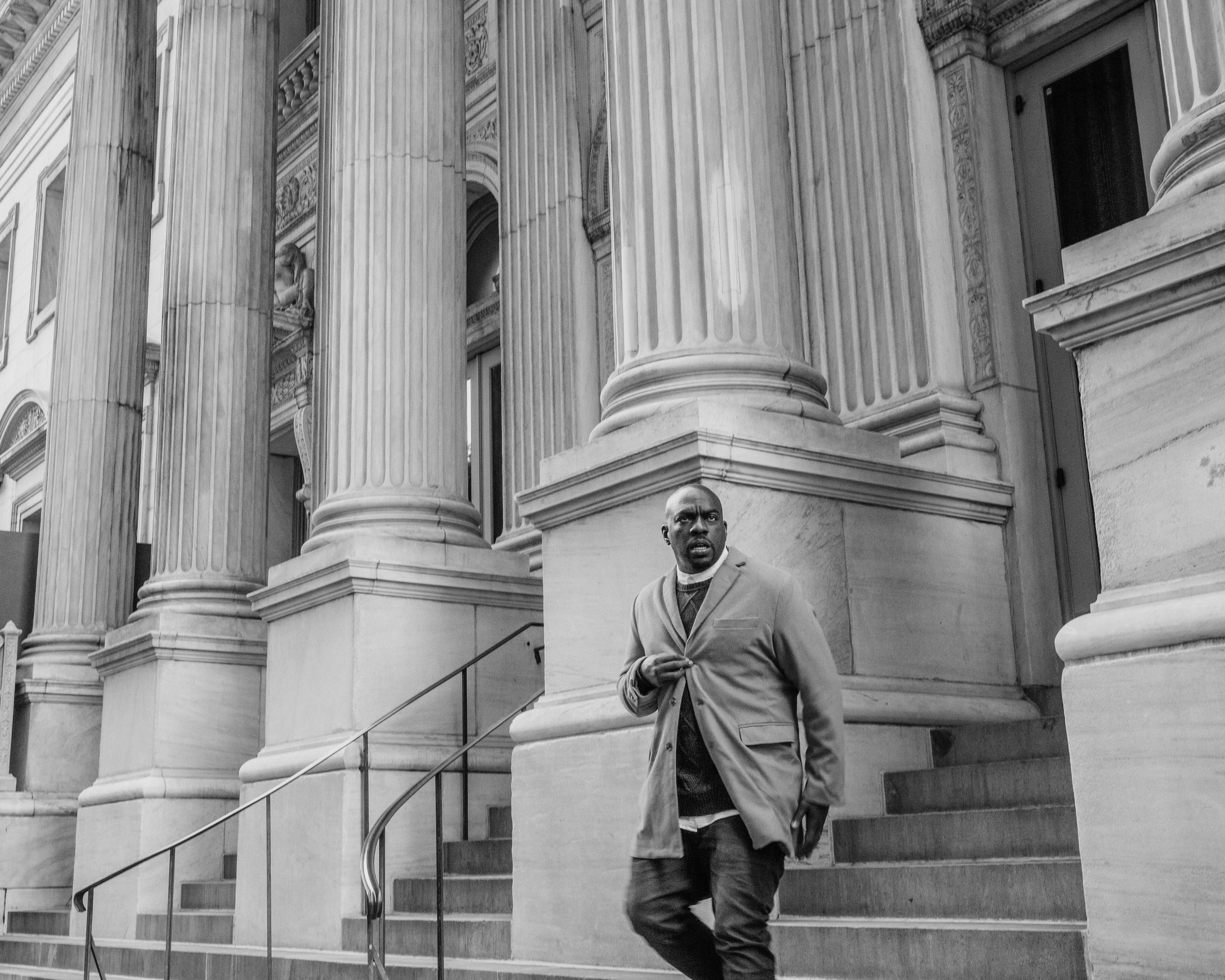
- Interview by Tina Essmaker November 22, 2016
- Photography by Eric Ryan Anderson
Omar J. Dorsey
- actor
LA-based actor Omar J. Dorsey has been acting for more than 15 years and has become well-known for his roles on Ray Donovan and most recently, Ava DuVernay’s Queen Sugar. Here, Omar reflects on his creative director mother’s influence on his desire to act, how he pushed past the stereotypical roles of his early career, the importance of play as he continues to grow, and why we should never stop practicing our craft.
Tell me about where you grew up and how your childhood influenced your ideas about creativity. I grew up Buchanan, Georgia, just outside of Atlanta. It was such a great time in Atlanta in the ‘80s and ‘90s because it wasn’t this crazy international city yet, but Outkast and Goodie Mob and all of these really experimental type of artists were coming out of the city.
My mother was a creative director and I went to see her direct shows. Sitting there in a theater watching people on the stage every day influenced me. That was what I wanted to do. I’ve been acting and doing talent shows since I was five years old. I was in all of the plays at school and church, and then I went to a performing arts high school. That’s my upbringing—I was around all of this creativity, all of the time.
Creativity was a natural part of your world then. Sometimes when I talk to people, they say their parents were resistant to them going into a creative field because it’s nontraditional and nothing is guaranteed. Was it the opposite experience for you—did your mom encourage you to pursue acting? It was. My mom was a schoolteacher, which was her 9-to–5, but from 6–9pm, she worked on plays. She told me to get out there and do theater. That’s what she loved, and she saw something in me when I was young. She didn’t care if I made money. She wanted me to do something I loved, something that I could be proud of. She always encouraged and supported me.
After high school, you studied theater in college, right? I actually studied film in college. I wanted to be a director and writer. While I was in college, I got a role in the movie Road Trip, and the money was pretty good. I thought that maybe I’d do both acting and writing, but 20 years later, I haven’t written or directed.
Was that first role by accident, or were you going out and auditioning? I went to an audition. I was doing plays in Atlanta and my first agent got me an audition for Road Trip, directed by Todd Phillips, who gave me the resumé I needed to move to LA. I did Road Trip and Drumline, and then my wife at the time told me I needed to get out of Atlanta and move to LA if I really wanted to act, so we packed up our bags and moved. My first movie in LA was with Todd again. It was Starsky & Hutch. Then the wheels started turning.
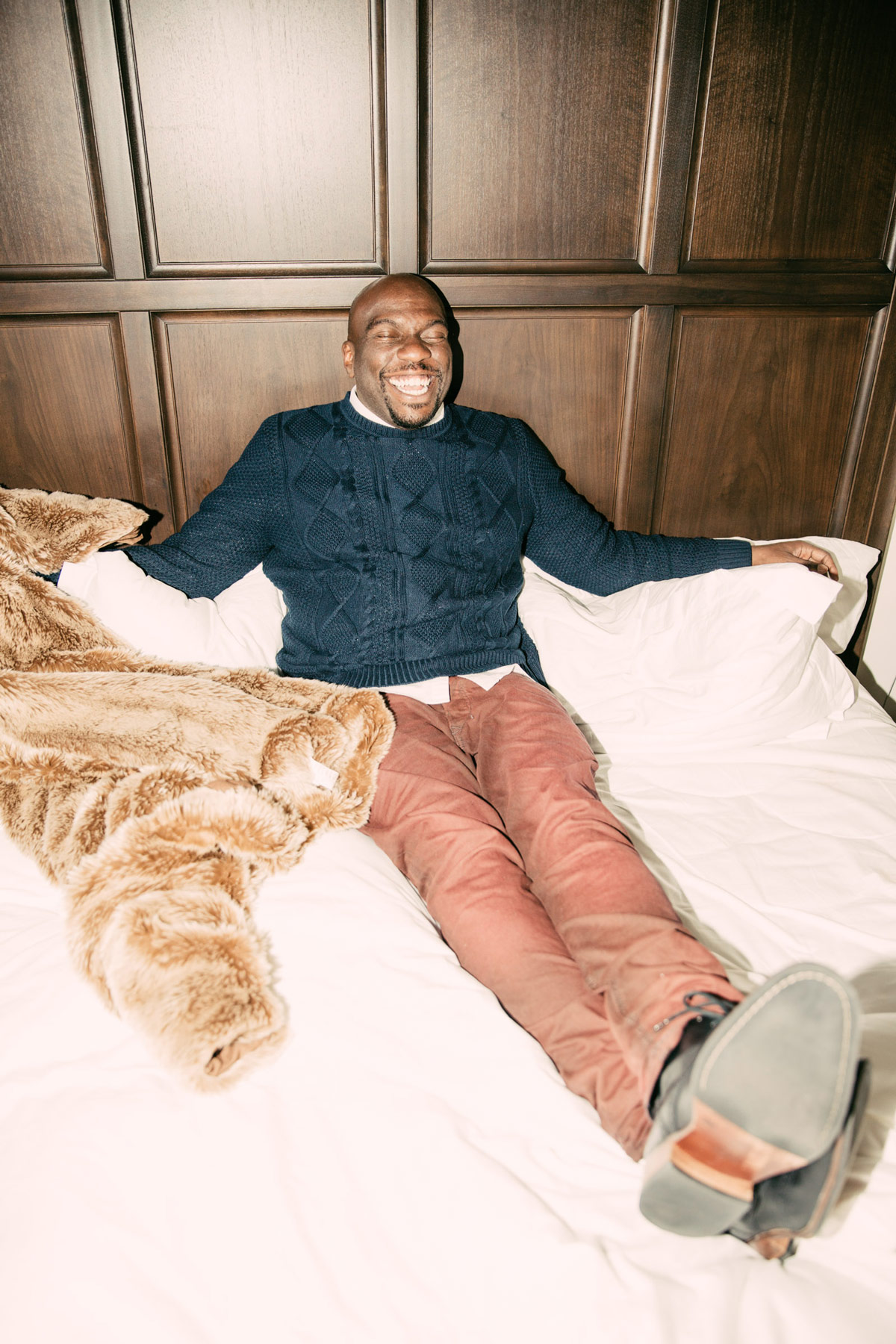
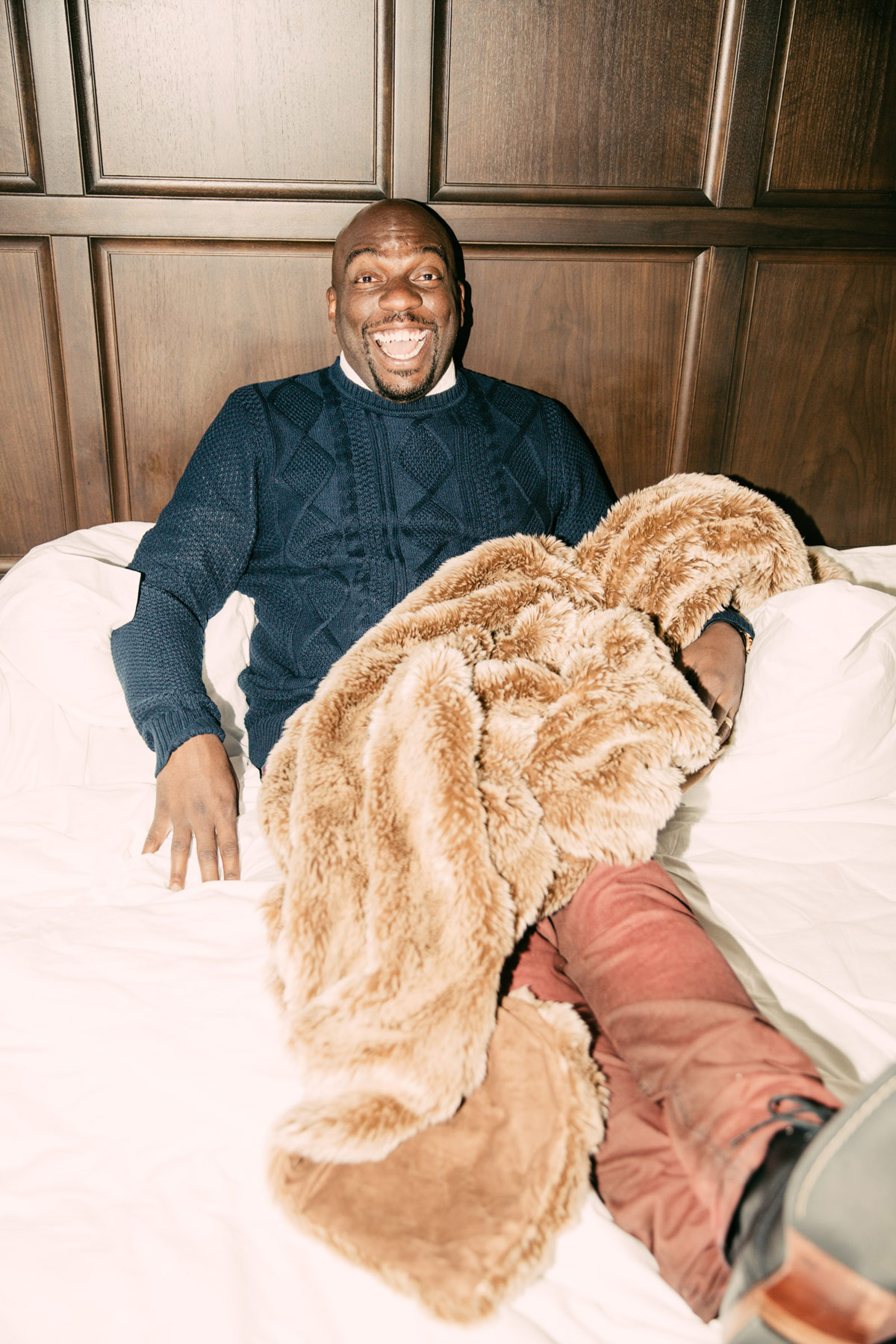
Yeah, I wanted to ask what the first few years of performing were like. What kind of sacrifices did you have to make? It wasn’t easy. I had two jobs for a while. I acted and bartended. I made pretty good tips bartending in Atlanta, which isn’t as expensive as LA. When I moved to LA, I couldn’t bartend, so I had to start waiting tables. It was cool until it got to be too much for me to wait tables and try to audition. In Atlanta, the managers encouraged me and were proud of me. In LA, it’s not like that because everyone’s an actor. They weren’t as lenient with scheduling. I had to make a choice, so I quit.
Tell me about the first time you thought to yourself, I’m doing this. It’s real. Did you have a moment like that? There are steps to it. Maybe it was the first time I did a play and got paid $100 a week to do what I wanted to do, or the first time I was on a movie set and had my own small trailer. I thought, wow, this is it! With Ray Donovan people started to know who I was, and with Queen Sugar, it’s like, I am really doing this. It’s about progressing. I’m not where I want to be, but I’m working toward it.
It is incremental. That goes for any creative field, but with performing it’s more visible. From the outside looking in, it can seem like, wow, that person has made it, but internally you know the struggles. You’re basically a freelancer, so sometimes there’s work and sometimes there isn’t. I was talking about this with an actor friend of mine who has become the biggest actor in the world right now. It’s funny. We did a movie together ten years ago that we played the leads in, but it took him this long to become an “overnight success.” It is incremental, and there will be lean times and prosperous times.
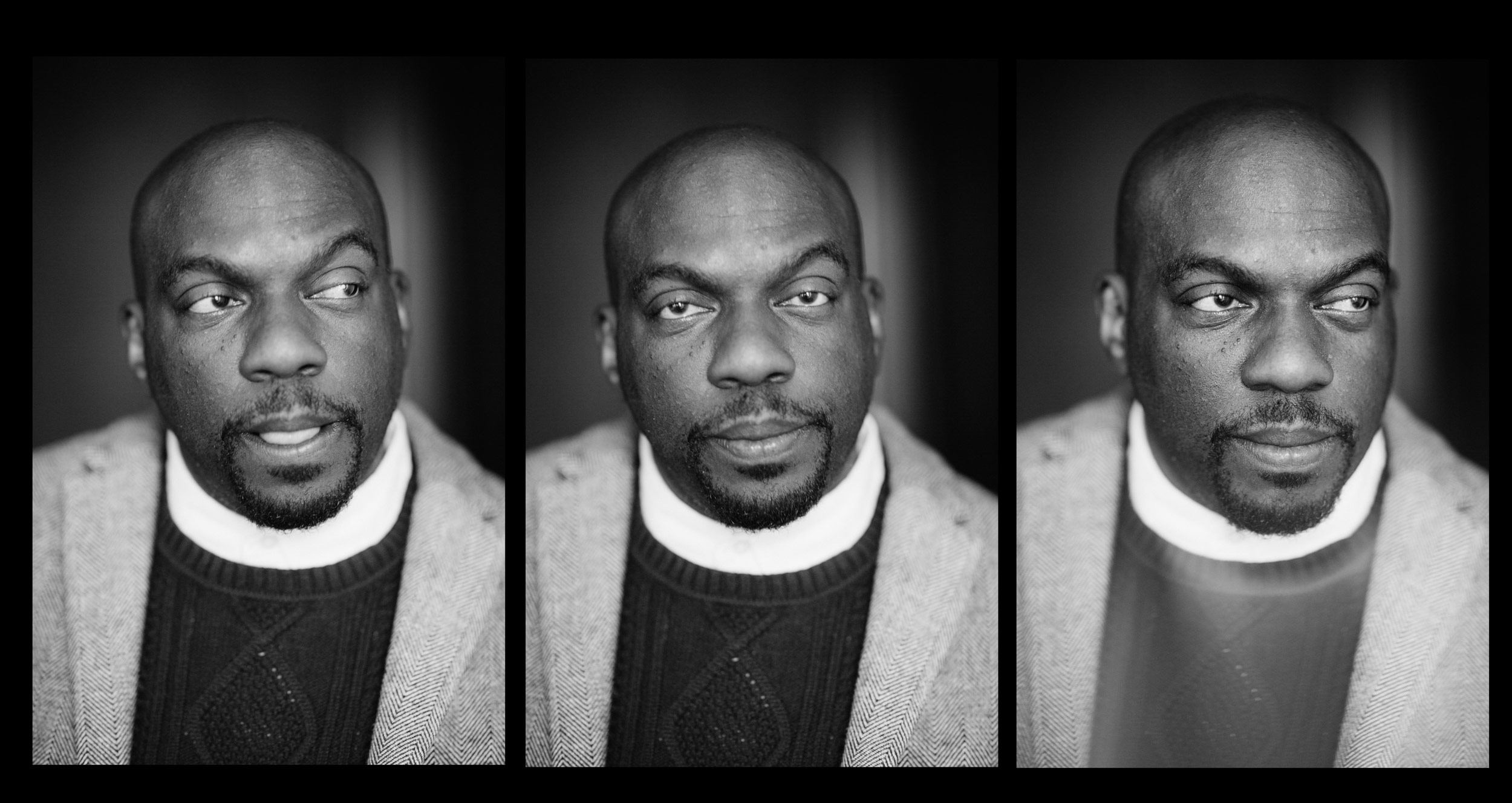
“My mother was a creative director and I went to see her direct shows. Sitting there in a theater watching people on the stage every day influenced me. That was what I wanted to do.”
Every overnight success has put in many, many years of work that we just haven’t seen. I think that’s certainly true of Hollywood. You mentioned Queen Sugar earlier, so let’s talk about that. I heard that Ava DuVernay, the show’s creator and director, wrote the role of “Hollywood” with you in mind. I was in the Bahamas doing a film. Ava texted me and said, “I’ve been trying to reach you all day.” I called her back and she told me that she wrote a role for me, but she knew I was filming the TV show Aquarius at the time and probably couldn’t do it. Aquarius wrapped in January and Queen Sugar started after that, so Ava sent me the script and told me to read it with a focus on the character named Hollywood. I read the script and it was amazing. I told her I’d be happy to come in and audition, and she said I didn’t need to—she wanted me to play the role. I was floored.
What have you learned through working on Queen Sugar? Have you had any insights about yourself? The show is based in reality. There are no perfect characters to root for, because they’ll let you down—that’s the human condition. We’re all flawed. We’re all messy.
There’s a character on there named Darla, who’s played by Bianca Lawson. Darla’s struggling with addiction and there’s an episode where she makes her amends. I had someone very close to me who was an addict, and when she tried to make her amends to me about eight or nine years ago, I wouldn’t accept it. So when Darla made her amends to my character in the show, that was me accepting what happened eight or nine years ago because now I’m strong enough and grown enough to accept what happened. There are so many things in the show that are therapeutic.
That’s the power of performance. It’s cathartic when it connects us to the experiences we’ve gone through, and I think that’s true for both the performers and the viewers. That’s why art is so powerful and why we need it in our lives. Yeah, that’s it. When art is real, people connect with it. If it’s artificial, then you might like it, but in a few months you’ll move on to something new. If it’s real, it will stick to your soul. You’ll remember it for life. That’s why a lot of great performances stick with you.
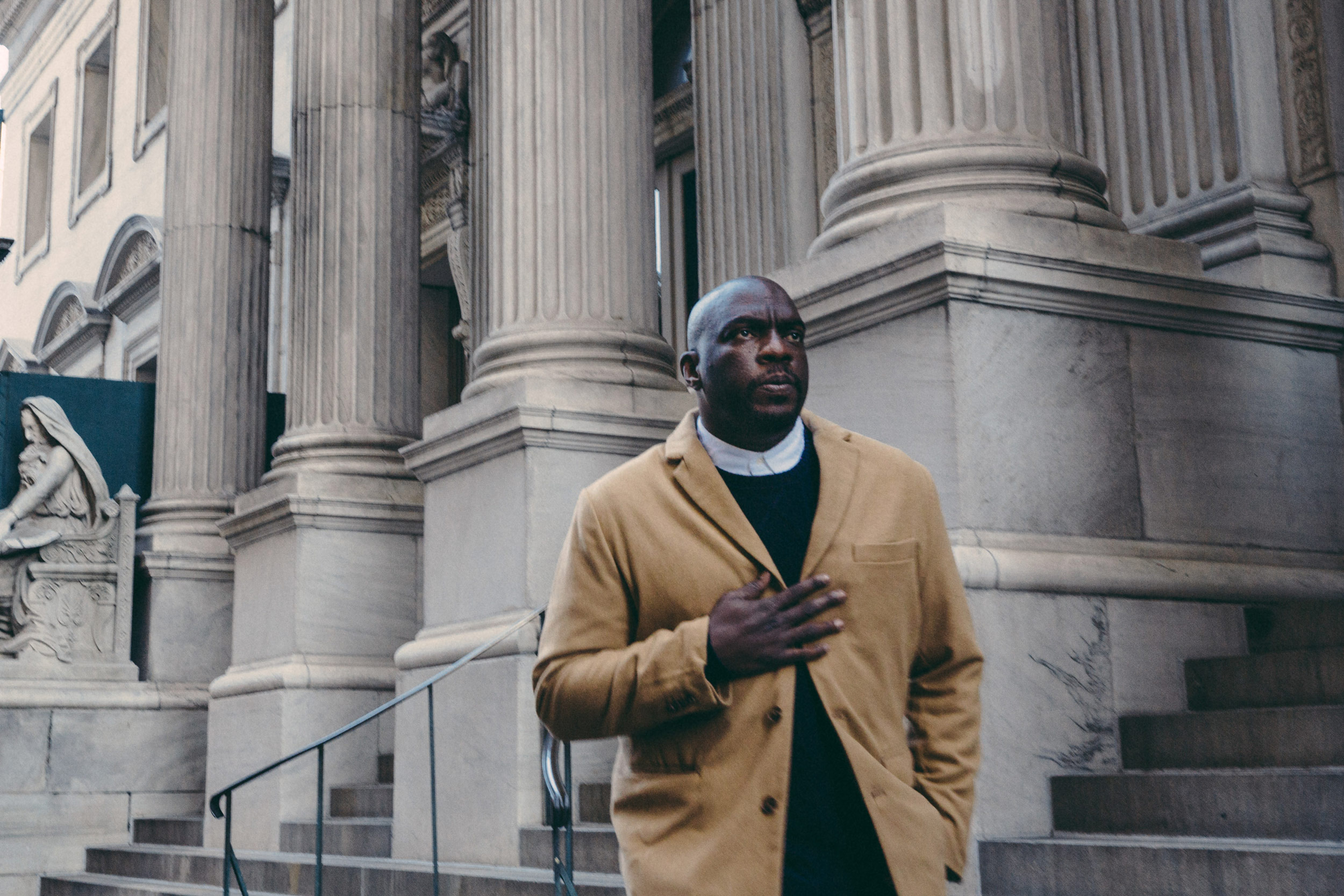
“If I’m ever satisfied, that’s when I stop growing. I’m not where I want to be as an artist or as a man. There is always room to grow.”
At this point in your career, considering the opportunities you’ve had, do you feel creatively satisfied? No, I don’t. I’m getting there. I think of it like this, Tina. If I’m ever satisfied, that’s when I stop growing. I’m not where I want to be as an artist or as a man. There is always room to grow. When you stop growing, you start dying. I want to continue to grow in artistic and personal spaces. I’m not satisfied yet.
How do you continue to push yourself to grow? Are there things you do to practice, especially in an industry where you’re kept so busy. How do you balance it all and find time to explore? I just came off of doing a play at the Geffen Playhouse in Los Angeles for three months. Before that, I hadn’t done a play in over a decade. That is a space for me to grow. I can become a better stage actor.
And the roles I take help me grow. I look at the people I like and they can do all of it: comedy, drama, movies, television, stage. If I’m not where they are, then I’m not where I want to be.
You mentioned stage acting, and that reminded me of the importance of play. Performing live allows you to be in the moment and be present, which is important when you’re creating anything. We can forget the importance of being in the moment. Right. For example, if you’re a music artist and you’re in the studio all day, you become a prisoner of that studio. If you’re not on the stage, you’re not understanding how people are ingesting your art. You become selfish and start to do it for yourself. You’re doing art for your own sake.
There’s something about that live interaction. I forgot about it until I was on stage doing eight performances a week. I missed that interaction and having a different audience every night. One person might find something funny, or the whole audience might laugh. You need to adjust to what the audience is feeling. That’s the great thing about doing it live.
Yeah, for sure. Do you ever experience creative block or get discouraged when you’re trying to tap into the psyche of a character? If so, how do you push past that? I don’t get discouraged. I just keep digging and digging and digging. Even when I did this play, it took me a week of performances to figure out the character better and see what the audience responded to.
I try my best to not be pigeonholed or tied to specific characters. I’m a 6-foot–2-inch, 235-pound dark-skinned Black man, so the first thing people think about is casting me as a thug. For me to move beyond and navigate that has been frustrating. It’s changed now, but that was the challenge for the first ten years of my career. But even when I was played those roles, I tried to put a different spin on them.
“There are no perfect characters to root for [in Queen Sugar] because they’ll let you down—that’s the human condition. We’re all flawed. We’re all messy.”
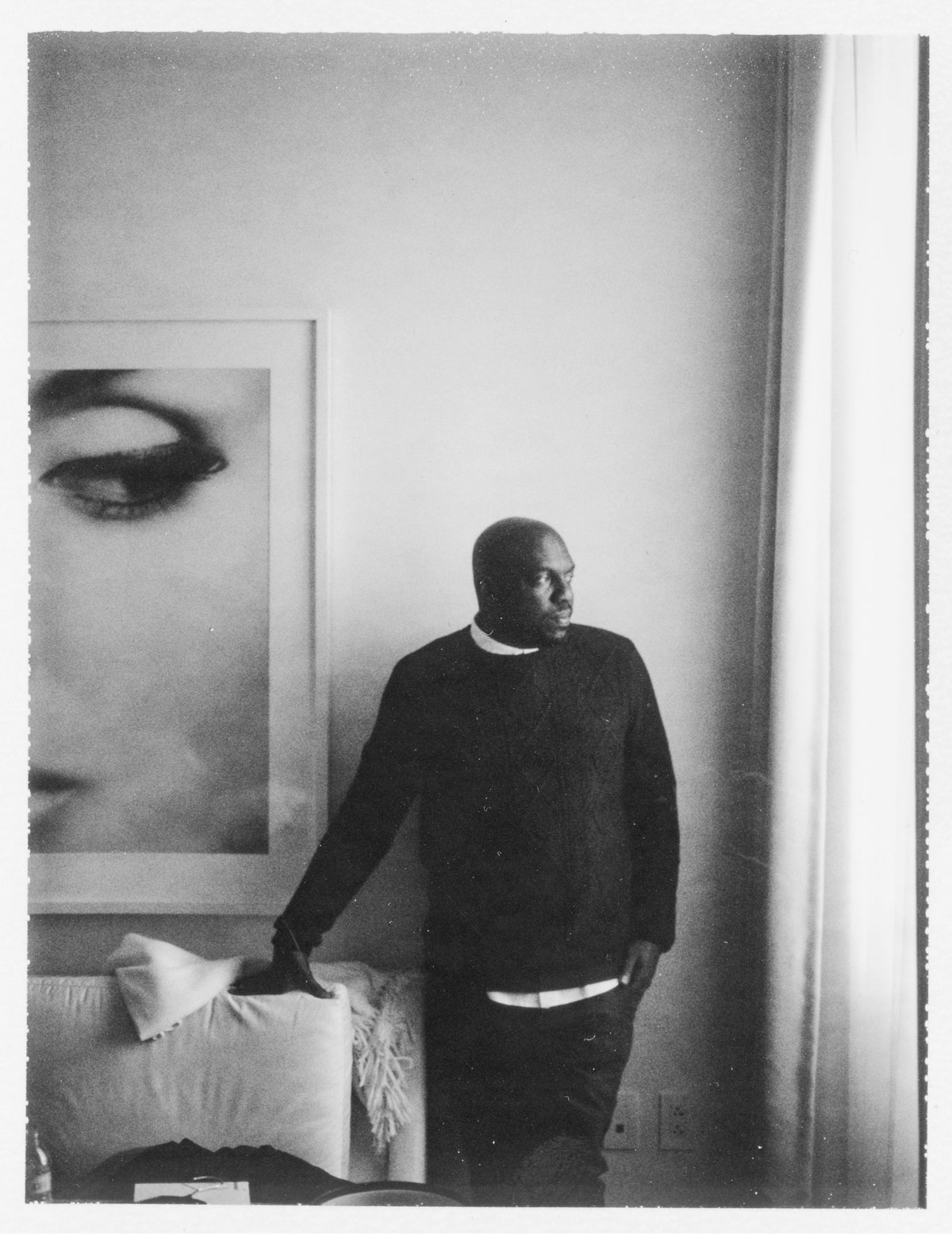
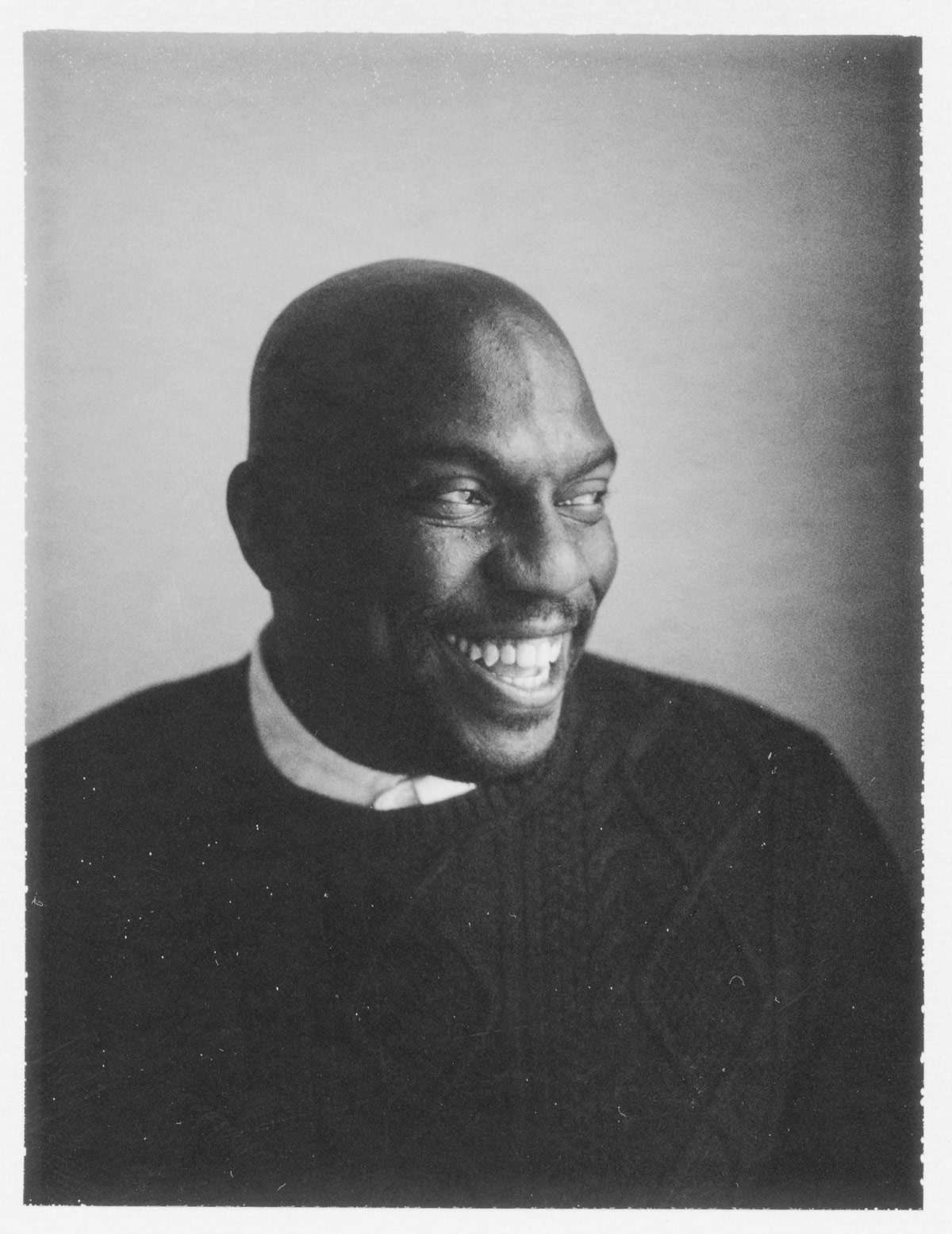
This was the year of #OscarsSoWhite and people speaking up about the whitewashing of Hollywood. Do you see things changing in Hollywood in terms of roles that are available for actors of color? I do see things changing. The things that have come out of the response to #OscarsSoWhite are incredible: Queen Sugar, Luke Cage, Atlanta, This Is Us. All of those shows came out of Hollywood saying, “We’re gonna give you a chance and see what you can do.” So you get Donald Glover, Ave DuVernay, and Cheo Hodari Coker creating these beautiful, undeniable pieces.
And they’ve received an amazing response. People have been waiting for these shows to be made. That’s what is is. I can speak directly about the Black community. There was a time when there was the one Black show. Now, we have shows where the experience doesn’t have to be only the Black experience—it’s everybody’s experience. We’re all humans. I have a lot of white people who come up to me and tell me how much they love Queen Sugar because it reminds them of their families. That’s exactly it. That’s how you humanize people.
That’s powerful. So, how does living in LA influence your work and how do you stay grounded living in that bubble of the industry? I have a beautiful wife and two beautiful kids who keep me grounded. I also have a group of friends who are all nomads and are transplants to LA. We’ve become a family. They’re amazing artists, musicians, actors, and writers. We’re all in the creative space and talk the same language. It can be a lonely existence if you don’t have that. I had the same experience with Queen Sugar. We spent six months filming in New Orleans, which is a beautiful city, and the cast became like a family.
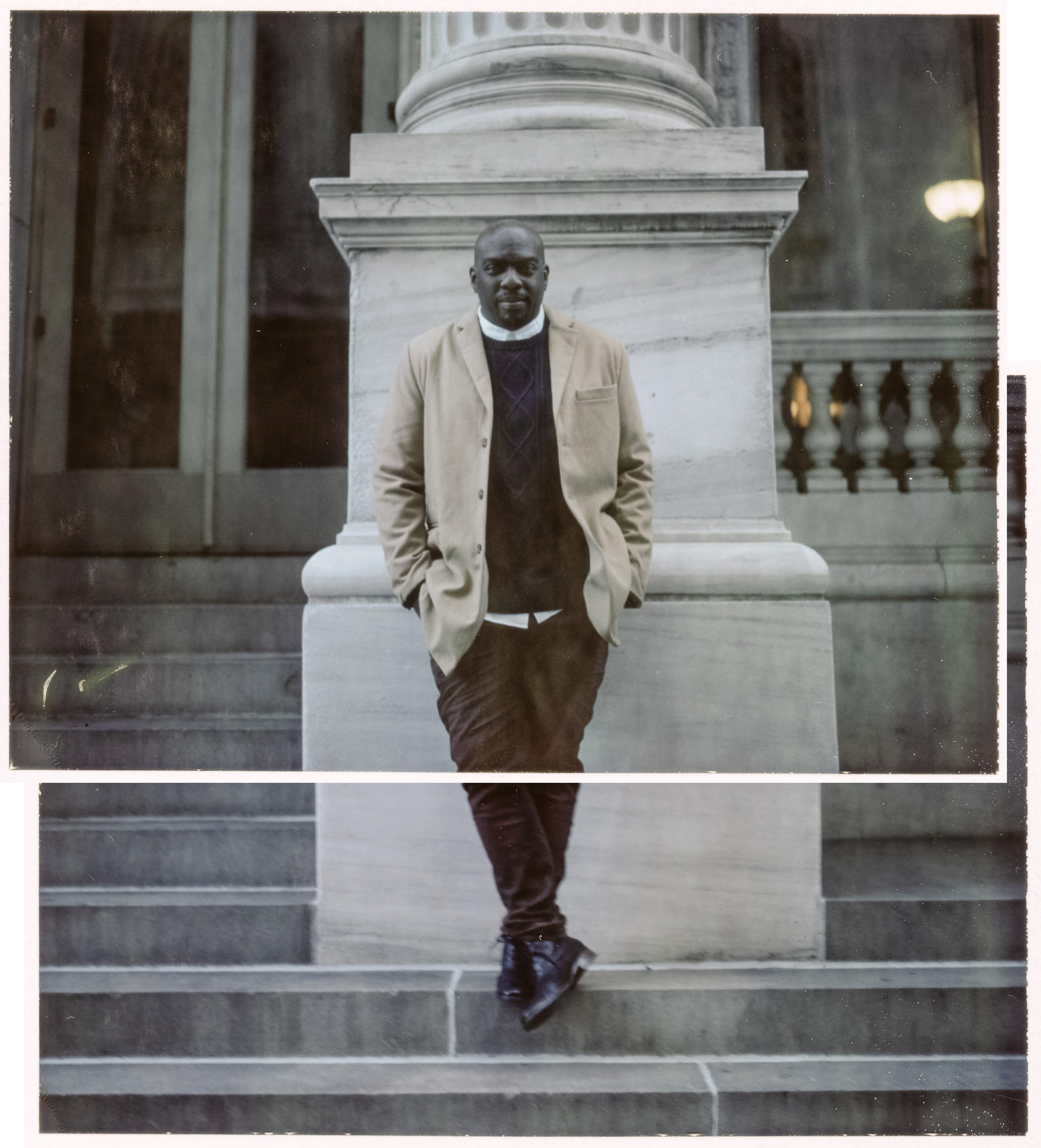
This question is for our readers who are starting out, or maybe starting over again and looking for insight. What advice would you offer them? Learn your craft. That’s what I tell everybody. Jump in a class and find a teacher who you can learn from. The thing about acting—or any creative field—is that you have to always be doing it. You have to learn your craft.
I love that. You can never stop learning. Okay, this is the last question and it’s a big one. Have you thought about the kind of legacy you want to leave, either personally or through your work? I have thought about it. There’s this new generation of Black actors now. I call it the Ava generation—and it’s not just her, but there are a lot of new directors coming in now.
I want to be the renaissance man of this generation—the guy who is able to play every character. I want to show a Black masculinity that has a softer side to it and is a real person. I’m a Black man and I’m super masculine, but I also want to show that there are colors to this thing, and it’s not the same paint by numbers that we always get.
That’s good. Actually, I have one more question. Season one of Queen Sugar wraps at the end of this month. Is there anything you can tell us that won’t spoil the finale for viewers? Everything isn’t a Hollywood ending. This is real life. Not everything gets wrapped up. That’s all I will say.
“When art is real, people connect with it. If it’s artificial, then you might like it, but in a few months you’ll move on to something new. If it’s real, it will stick to your soul.”
